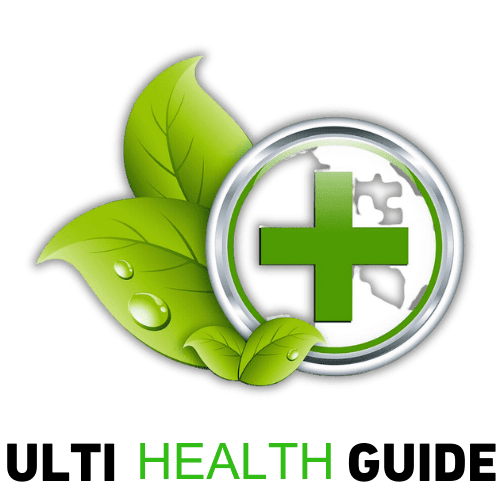Polycystic ovarian syndrome (PCOS) is a hormone condition affecting reproductive-age women. Characterized by the appearance of tiny, fluid-filled sacs on the ovaries, ovary syndrome can cause a wide range of symptoms. This common hormone disorder affects menstrual periods by causing irregular periods as well as irregular ovulation, infertility, weight gain, excess hair growth on the face and body, and in some cases thinning of the hair as well as hair loss.
While the causes of PCOS are not yet fully understood, there are treatments available to help manage its symptoms when PCOS is diagnosed. This article will discuss PCOS in detail: the symptoms, causes, treatments, risks, and how PCOS affect your infertility.

What Is Polycystic Ovary Syndrome (PCOS)?
The most prevalent endocrine disease in females of childbearing age is ovary syndrome. The name derives from the characteristic cysts that may form on the ovaries. However, it’s worth noting that they’re simply a symptom rather than the underlying cause.
What Are The Causes Of PCOS?
PCOS is a cumulation of symptoms caused by an endocrine disease in women and girls going through puberty. PCOS occurs when a woman’s ovaries or adrenal glands produce more male hormones (hormones called androgens) than usual.
Women with PCOS frequently have at least two of the following issues:
- Irregular periods or none.
- Elevated androgen levels. (a group of reproductive hormones)
- Polycystic ovaries cysts (fluid-filled sacs) on one or both ovaries.
- Excessive and coarse hair growth or hair loss in some cases.
Women with PCOS can get ovarian cysts (that’s why it is called polycystic), although many women with PCOS don’t have cysts. The cysts create hormones called androgens. Androgens can cause a hormonal imbalance that interferes with a woman’s period cycle, causes acne, and excessive weight and hair growth.[1]

What Are The Most Common PCOS Symptoms?
- Excess androgen that elevates levels of male hormones may result in physical signs, such as excess facial and body hair growth (hirsutism).
- Female infertility.
- Pelvic pain.
- Hair loss. Women’s hair might thin as they age, becoming even thinner in middle age.
- Acne is caused by a hormonal imbalance. Oily skin and pimples are a result of hormone abnormalities. (Of course, you can get these skin issues whether or not you have PCOS.)
- Acanthosis nigricans is a skin pigmentation disorder that causes melanin to increase. You may notice thick, dark discoloration patches under your arms or breasts, on the back of your neck, and in your groin region.
- Difficulty sleeping. Alternatively, you may have sleep apnea, which is an issue that prevents you from fully resting when you are sleeping. It implies that even though you slumber, you do not feel well-rested after waking up.
- Weight gain. Approximately half of the women with PCOS experience weight gain or have difficulty losing weight. PCOS has the potential to cause a significant amount of weight accumulation. Obesity can make PCOS symptoms worse. Shedding even just a few pounds may help you get your periods back on track. Losing weight by following a healthy diet may be advantageous in terms of fertility.
- Type 2 Diabetes. Blood sugar levels rise and your pancreas produces more insulin. Excess insulin increases androgen levels, causing menstrual cycles to be abnormal.
Treatment Options For PCOS
When it comes to PCOS, there is no specific treatment or blood tests to diagnose women with PCOS. Your healthcare practitioner will focus on your individual concerns that can be hirsutism (excessive growth of dark, coarse hair), infertility, obesity, or acne. Treatment might also involve lifestyle changes and or medication you are trying to get pregnant.
Medications that your doctor may recommend to regulate your menstrual cycles:
- Hormonal birth control pills containing estrogen and progestin are the most frequently used PCOS therapy for women to regulate their menstrual cycle. Hormonal contraception such as pills can be substituted by a skin patch or vaginal ring.
- Progestin treatment is taken for up to 2 weeks every two months, or in extreme cases, every month, to regulate irregular periods and protect you against endometrial cancer. This treatment can stop ovulation, but not consistently, and might not prevent pregnancy.
Medications to bring on ovulation on prescription by your healthcare practitioner
- Oral anti-estrogen is taken during the first part of your menstrual cycle.
- Certain breast cancer treatments for stimulating the ovaries.
- The diabetes drug Metformin lowers insulin levels.
- Injectable hormone medication.
What Is The Role of Testosterone (Male Hormones) In Females?
Testosterone (male hormone) is produced in a female’s ovaries in small amounts. Combined with estrogen, (female sex hormone), testosterone helps with the building of bone mass, general maintenance and growth, and the repair of a woman’s reproductive tissues.
Ways to reduce excess hair growth when having PCOS
- Birth control pills to reduce androgen production.
- Other medication to block the effects of androgen on the skin. Not recommended if you are planning to become, or are pregnant. ( Can cause birth defects.)
- Creams to slow down hair growth.
- Electrolysis treatment to damages and or destroy hair follicles..
- Laser hair removal
Lifestyle changes during PCOS
- Losing weight reduces androgen and insulin levels and can help to restore your ovulation.
- A low carbohydrate diet consisting of complex carbohydrates and whole foods will help to raise blood sugar levels slowly.
- A regular exercise program might prevent insulin resistance as it will lower your blood sugar levels. Exercise also helps with weight control and might help you to lose weight.
Risks Associated With PCOS
PCOS is a condition that causes many women to have issues conceiving and carrying a pregnancy to term. It’s critical to comprehend the long-term health risks associated with PCOS, including infertility and miscarriage. Women with PCOS are at higher risk of:
- Type 2 diabetes.
- Metabolic syndrome.
- Heart disease.
- High blood pressure. (High blood pressure may damage the heart and kidneys.)
- High LDL cholesterol levels increase the risk for heart attack and stroke.
- Sleep apnea. This disorder causes you to stop breathing during sleep and raises the risk of heart disease.
- Endometrial cancer can be caused by fluctuations in the balance of estrogen and progesterone that cause changes in the endometrium. Anovulation causes prolonged exposure of the endometrium to unopposed estrogen, which raises the risk of endometrial cancer.
- An increased risk of ovarian cancer may also exist in some women with PCOS
Can I Get Pregnant With Irregular Menstrual periods?
PCOS is a hormonal condition in the ovaries. High levels of androgens can prevent ovulation resulting in no release of eggs by the ovaries.
PCOS can disrupt menstrual cycles. The most apparent symptoms of PCOS are failing to ovulate or ovulating infrequently. The menstrual cycle can be severely disrupted by PCOS, resulting in excessive bleeding, irregular cycles, and absent periods. Women who suffer from PCOS may have difficulty getting their periods. Conceiving may be more challenging if you don’t have a regular menstrual cycle which is one of the most prevalent causes of infertility is PCOS.
How To Diagnose PCOS
Individuals with PCOS might display features such as acne, excess hair growth, skin pigmentation and thickening in specific places, and insulin resistance. Your healthcare practitioner may do a:
- Physical exam
- Pelvic exam
- Blood tests
- Ultrasound scan[2]. This is the most common way to reveal the thickness of the lining of the uterus. (Endometrial lining.)
- Your doctor will make a list of your symptoms and medical history.
- Your healthcare practitioner may also check your blood glucose levels.
No single test can diagnose PCOS. Diagnosis and early treatment, along with weight loss and a healthy diet, may reduce the risk of long-term complications. [3]

What foods should I add to my PCOS diet?
A PCOS diet should consist of whole, unprocessed foodstuff enable vitamin absorption, nutrient intake, and to manage insulin levels.
Lean Protein
- Fish: (salmon, cod, tuna)
- Poultry: (chicken and turkey breast)
- Plant-based proteins: (beans, tofu)
Complex Carbohydrates
- Whole Grains: (quinoa, oats, brown rice)
- Legumes: (beans, peas, lentils)
- Potatoes: (white & sweet potatoes)
Antioxidant-Rich Fruits and Veggies
- Fruits: (strawberries, blueberries, raspberries, kiwi, apples, cherries, cranberries)
- Vegetables: (beets, tomatoes, broccoli, peppers, carrots, asparagus, dark leafy greens)
Healthy Fats
- Olive oil, Nuts: walnuts, almonds, cashews, Seeds: chia, flax, and sunflower, Avocado
- Apple cider vinegar is a solution for many skin disorders. It has applications as a natural cure for several illnesses, including arthritis and diabetes.
Add-In Some Fiber
A diet high in fiber help to keep your insulin levels normal by slowing down the digestion thereof.
Up Your Magnesium Intake
Magnesium deficiency can easily be detected via blood tests. Almonds, cashews, spinach, and bananas are magnesium-rich foods PCOS patients can eat.
How does Carb And Protein Intake Affect Your Hormones?
Carbohydrates and protein have comparable effects on your energy levels and hormone levels. Protein intake stimulates the production of insulin, which stimulates the production of ovarian androgens.
What Foods Make Polycystic Ovarian Syndrome Worse?
The following foods should be avoided:
- High sugary drinks and snacks
- Fried foods.
- Processed meats like bacon, cold meats, sausages are all causing inflammation.
- Refined carbohydrates such as pasta, white bread, cakes, and pastries
- Processed foods like ice creams, cheese, sweetened yogurt, cakes.
- Red Meats.
- Cut Out Caffeine. Caffeine affects estrogen levels and hormone function. Try drinking a decaf alternative, such as herbal tea to boost your energy. Kombucha’s probiotic qualities may also be beneficial. Try green tea instead if you can’t do without a caffeine boost. Green tea improves insulin resistance.
Conclusion
PCOS is an unpredictable, embarrassing, and at times painful battle that only half of us will understand. But you are not alone; Polycystic Ovary Syndrome is the most common hormonal disorder among women of reproductive age. And while there is no cure, PCOS can be managed with the right treatment plan. If you think you might have PCOS or experiencing any of the symptoms discussed in this article, make an urgent appointment with your healthcare provider.
FAQ
What Is The Latest Treatment Strategies For PCOS?
Drugs, as well as non-pharmacological therapies, are being tested. In vitro research is focused on the cellular and molecular mechanisms of pharmacological treatments.
Is Polycystic Ovarian Syndrome Genetic?
PCOS has a genetic or hereditary component.
Can Lifestyle Changes Help Manage PCOS Symptoms?
Lifestyle changes can help to reduce PCOS symptoms like exercise and healthy eating. Both can assist in decreasing insulin resistance when used together. Stress, in particular, is strongly associated with PCOS. Yoga and meditation are two stress reduction techniques that can aid in lowering stress levels.

